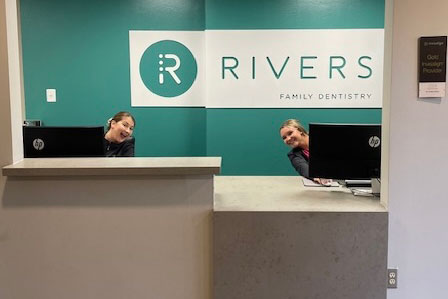Do Essential Oils Help or Hurt Your Dental Health?

With more and more people getting on the “clean living” train nowadays, natural ingredients are fast replacing chemical-based products, even for dental health. Natural products such as essential oils have gotten popular, and there is growing discord regarding the facts and fictions of essential oils and their contributions to dental health.
An overview of essential oils
Essential oils are sourced from plants and could be distilled or extracted from the seeds, bark, leaves, flowers or roots. Their chemical makeup is comparable to human cells and tissues, which makes the identification and absorption process in the body seamless. Because of their small molecular structure, the body can process them quickly and allow them to seep easily into the membranes and diffuse through the body and tissues. Many essential oils have multiple therapeutic effects, as opposed to synthetic chemicals that typically have a single function and a few side effects.
Essential oils have three application methods:
- Inhalation: This is possible using a vaporizer, humidifier or diffuser. You can also pour a few drops of oil on your palm, rub together and inhale deeply with your hands over your face.
- Internal use: You can take the oil directly, in capsule form or by mixing it with your drink or food.
- Topical use: You can apply the oil directly on your skin in concentrated or diluted (using carrier oils) form.
The effect of essential oils on dental health
Clove oil is perhaps the most common oil in dentistry. Dentists often recommend it for treating dry sockets, toothache caused by pulpitis and hypersensitivity. There have been studies on cinnamon bark, peppermint, sweet fennel and other essential oil plants to discover their antibacterial and antiplaque effects on the oral cavity. Sweet basil and cinnamon bark were discovered to have inhibitory effects on bacteria. The conclusion was that using essential oils can help prevent cavities.
For treating gum-related diseases, dental visits combined with regular use of essential oils has been shown to remarkably reduce bacterial count in the deep gum pockets of the subjects. This shows that essential oils can be an important element in the treatment of periodontal diseases.
Also, essential oils can be beneficial in relieving dental anxiety and improving mood through their stimulating effect on parasympathetic action in the autonomous nervous system. Dental anxiety is a fight or flight reaction prompted by visits to the dental office. Some essential oils trigger and stimulate the parts of the brain that control blood pressure, heart rate, memory, breathing, stress and hormones.
One popular essential oil known for its soothing properties is lavender. In a particular study, lavender reduced anxiety levels in male and female patients who were exposed to lavender oil a few minutes before their dental appointment. Orange essential oil held promise for children between ages six and nine. The conclusion was that using diffusers in the waiting area or reception of a dental practice may help patients with dental anxiety.
Are essential oils safe?
Essential oils have few or no adverse side effects and are effective for different oral health conditions. However, the safest practice is to consult your dentist before using essential oils for any condition you have.
Request an appointment here: http://www.riversdentistry.com or call Rivers Family Dentistry at (979) 710-2216 for an appointment in our Bryan office.
Check out what others are saying about our services on Yelp: Read our Yelp reviews.
Related Posts
Looking for a dentist near me in Austin’s Colony? Rivers Family Dentistry has been a proud neighbor in the Bryan community for years, and we’re here to help you and your family smile with confidence. We love being part of this vibrant Bryan neighborhood, in 77808, located just a stone’s throw away from local landmarks…
A general dentist plays an essential role in maintaining lifelong oral health by providing preventive, restorative, and cosmetic care for patients of all ages. While specialists focus on particular aspects of dentistry, a general dentist provides a wide range of services to address routine needs and detect issues early. Understanding what distinguishes a general dentist…
Your family dentist can apply dental sealants as an effective way to protect the chewing surfaces of your child’s teeth. The sealants are in liquid form but harden when in contact with saliva. This preventive treatment can help protect your child’s teeth from bacteria and food particles. Here are the details on when your family…
Curious about how long dental bonding lasts? Read on to learn more. Dental bonding can be a functional as well as aesthetic procedure. It is simple, quick, and effective for correcting minor dental imperfections that impact the appearance of the smile. It involves putting a tooth-colored composite resin on the surface area of the tooth.…


